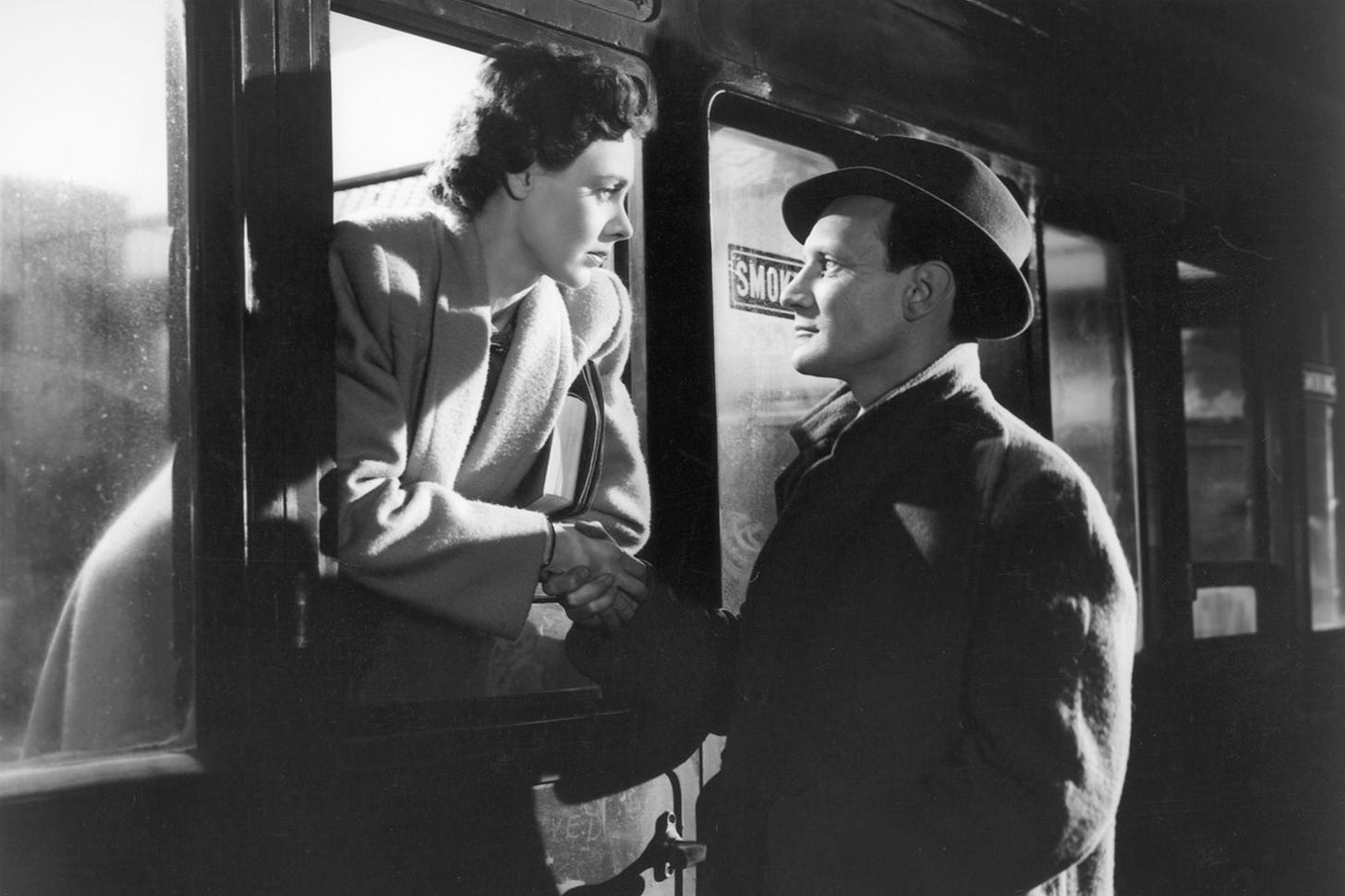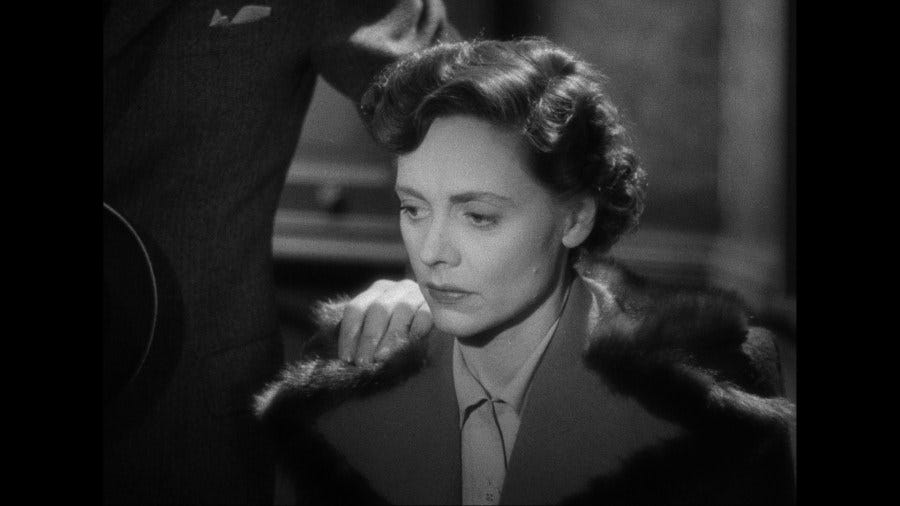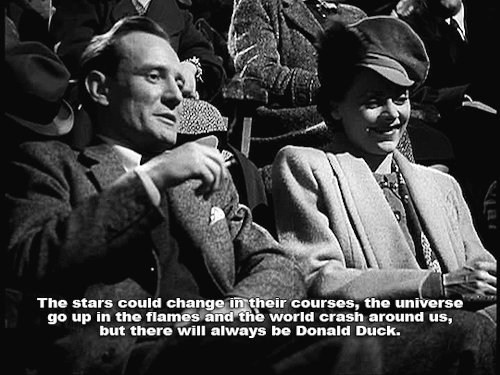(Eagle-Lion / Criterion)
Before he was known as one of the biggest innovators for the historical epic genre, film director David Lean began his career with domestic and romantic melodramas set in his home of dreary old England. Not only did his classics The Bridge on the River Kwai (1957), Lawrence of Arabia (1962) and Doctor Zhivago (1965) pave the way for filmmakers like Steven Spielberg, Kathryn Bigelow and Robert Zemeckis, but his early critical darlings like This Happy Breed (1944), The Passionate Friends (1949) and Summertime (1955) set the pace for the future of cinematic romances as well. 2025 marks the 80th anniversary of Lean’s most successful on-screen love story, Brief Encounter (1945). A movie that seems to become more and more popular over time, has also proven to be one of the most influential. Avid film fans who have delved into old Hollywood and Lean’s career will quickly notice the similarities between the B&W classic and modern favorites such as Wong Kar-wai’s In the Mood for Love (2000) and Sofia Coppola’s Lost in Translation (2003); and to some extent Sydney Pollack’s The Way We Were (1973), Richard Linklater’s Before Sunrise (1995), and Todd Haynes’ lesbian romance Carol (2015).
Based on Noël Coward’s 1936 hit stage play of the same title, the story of Brief Encounter follows two strangers, housewife Laura (Celia Johnson) and local doctor Alec (Trevor Howard), who meet by chance at a movie theater while both have the afternoon off. Laura and Alec are both married but get along so well their random run-ins turn into meeting up once a week for a couple of hours in the city. Eventually they acknowledge the feelings between them are more than casual, leading Laura in particular to internally battle her attraction to a man away from her family at home. This is now a very common soapy plot for characters in both film and TV, so it’s unsurprising Brief Encounter has also grown a following with gay movie fans as well, with its theme of forbidden passion and temptation; and Coward himself was privately a gay man. Lean, on the other hand, was already on to his second of six wives by the time Encounter was in production, and probably didn’t connect to the story through the author’s perspective.
(Eagle-Lion / Criterion)
But that’s one of the beauties of the iconic feature. How various groups of people can understand the leads, and how the dilemma works in any culture. Laura and Alec are Brits, Mo-wan and Li-zhen of In the Mood for Love are from Hong Kong, Bob and Charlotte in Lost in Translation are American, etc. Another element of Brief Encounter that was ahead of the curve was the casting. Rather than recruit glamourous movie stars like MGM or Warner Bros might have done in the US, Lean and Coward brought in two ordinary looking character actors to highlight how this is a tale of two average citizens. Viewers can relate to fictional characters the easiest when they appear similar to themselves rather than physically perfect. Amusingly, this is not one of the aspects of Encounter that carried on to the films it inspired, since I think most would agree Maggie Cheung, Robert Redford and Scarlett Johansson don’t exactly look like everyday folks. Johnson’s performance as Laura rightly earned her an Oscar nomination for Best Actress along with Lean for Best Director and a Best Adapted Screenplay nom for Lean, Ronald Neame and Anthony Havelock-Allan. The film also won the Grand Prix at the Cannes Film Festival the same year, making it an instant hit with both critics and the industry as well.
With how ingrained the basic story of Brief Encounter is into romance in fiction, I wouldn’t be shocked if younger audiences find it a bit pedestrian the same way watching the twists in Alfred Hitchcock’s Psycho (1960) are now. I’ll admit, it actually did take me a while to truly appreciate Encounter since Lost in Translation was already one of my favorite movies by the time I watched the earlier classic, and I generally find Lean almost too British to fully enjoy as a Yank. But credit where credit is due, it’s been eight whole decades since its successful release, and Brief Encounter is no doubt a timeless picture.
[And for those wondering why I’m publishing this piece seven months before the movie’s initial release date, I actually meant to write and post this around Valentine’s Day, but then time got away from me. C’est la vie.]






